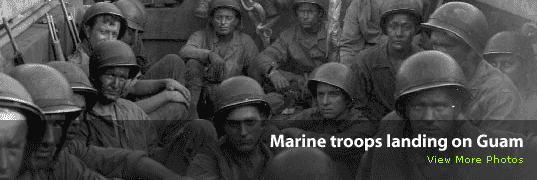|
On the night of July 15, 1944, soldiers of the Japanese imperial army attempted the deliberate massacre of thirty people from the village of Merizo, Guam. In an area called Tinta, these soldiers succeeded in killing sixteen of the villagers, leaving the rest for dead.
Under the pretense of gathering a work crew, thirty men and women from Merizo were herded together and told to march to the site at Tinta. There they were told to rest for the night in a dugout cave located at the foot of the hill.
Soon after the villagers shuffles into the cave, the Japanese began lobbing hand grenades through the opening. Several the victims were members of the some of Merizo’s leading families. Among them was Mrs. Maria L. Mesa, a prominent pre-war educator.
According to one of the survivor’s, Manuel Charfauros, the soldiers were not satisfied with the results and sought to ensure that no one was left alive. He recounts:
“At the signal from the officer the other soldiers entered the cave with their sabers to kill anyone left alive. Those who had survived the grenades pulled the bodies of the dead and the wounded over their own for their own protection and in that way survived the butchering”.
Despite the gruesome efforts of the Japanese, fourteen people did survive. However, the next day, July 16 th, 1944, the soldiers were even more thorough in their methods. In a place known as Faha, thirty more men from Merizo were led to an area and butchered. No one survived their massacre.
Text courtesy of Guam Historic Preservation Office
|





